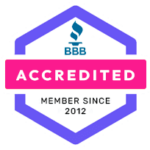Practical Steps to Business Integrity: How to Lead with Trust

In an era where consumers are more informed and discerning than ever, business integrity stands as a non-negotiable pillar for any organization aiming to achieve sustainable success. This concept, often enveloped in the broader discussions of ethical conduct and corporate responsibility, it is the backbone of modern entrepreneurship.
But what exactly does business integrity entail, and why is it so crucial in today’s market?
Defining Business Integrity and Its Importance in Entrepreneurship
At its core, business integrity involves adhering to ethical principles and standards in all company operations, ensuring honesty, fairness, and respect in dealings with all stakeholders, including customers, employees, suppliers, and the community.
It’s about doing the right thing, even when no one is watching, and making decisions that are not only legal but also morally sound.
The importance of business integrity cannot be overstated. In a digital age where information is readily accessible, and corporate missteps can go viral in seconds, a reputation for integrity can be a company’s most valuable asset.
It builds trust with consumers, who are increasingly choosing to do business with companies that align with their values. Moreover, it fosters a positive workplace culture, attracting and retaining top talent who are proud to be part of an ethical organization.
Actionable Steps to Establish
Building and maintaining trust requires consistent and deliberate effort. Here are actionable steps businesses can take to embed integrity into their core:
- Set Clear Ethical Standards: Define what integrity means for your business. Develop a code of ethics that outlines expected behaviors and decision-making guidelines.
- Lead by Example: Leadership should embody the company’s values, demonstrating commitment to integrity in every action and decision.
- Ensure Transparency: Communicate openly about policies, changes, and decisions. Transparency builds trust and reduces the room for misunderstandings.
- Foster an Ethical Culture: Create an environment where employees feel comfortable discussing ethical dilemmas and reporting unethical behavior without fear of retaliation.
- Practice Accountability: When mistakes happen, acknowledge them openly, take responsibility, and implement measures to prevent future occurrences.
The Role of Transparency and Honesty in Business Operations
Transparency and honesty are not just ethical choices; they are strategic business practices that can significantly impact a company’s success. Transparent operations allow for clear communication channels, fostering a culture of trust. Honesty in dealings, whether with customers, employees, or partners, ensures that all stakeholders feel valued and respected, encouraging loyalty and engagement.
Case Studies of Businesses Thriving on an Integrity-Based Model
Several companies have built their success on a foundation of integrity. For instance, Patagonia, the outdoor clothing brand, has long been celebrated for its commitment to environmental sustainability and ethical manufacturing practices. This dedication to integrity has cultivated a loyal customer base that values the brand’s transparency and ethical stance.
How to Communicate Your Integrity Through Branding and Marketing
Communicating your business integrity effectively requires a strategic approach to branding and marketing. Here are some tips:
-
Be Authentic: Share your company’s story, including the challenges and how you’ve overcome them while sticking to your ethical principles. Authenticity resonates with consumers.
-
Highlight Ethical Practices: Use your platforms to highlight your commitment to ethical practices. Whether it’s sustainable sourcing, charitable initiatives, or fair employment practices, let your audience know what you stand for.
-
Engage with Your Community: Show your integrity by engaging with your community and stakeholders. Respond to feedback, participate in community events, and demonstrate your commitment to making a positive impact.
-
Leverage Social Proof: Customer testimonials, certifications, and awards can all serve as social proof of your business integrity. Share these accolades to build trust with potential customers.
Integrity in Customer Engagement
integrity means more than just delivering quality products and services; it involves creating genuine connections with consumers. Businesses that prioritize integrity engage in transparent communication, openly sharing the successes and challenges they face. They listen to their customers, valuing their input and using it to drive improvements. By fostering a culture of honesty and respect, businesses can create a loyal customer base that feels valued and understood.
Innovating with Integrity
Innovation is the lifeblood of business growth, but it must be pursued with integrity. This involves respecting intellectual property rights, ensuring new products or services do not harm consumers or the environment, and being transparent about the potential risks and benefits. Companies that innovate with integrity are not only seen as leaders in their industry but also as trustworthy entities that customers feel confident supporting.
Business integrity is more than a policy; it’s a practice that requires ongoing commitment and action. Start today by evaluating your own practices, setting clear standards for integrity, and taking deliberate steps to embody those values in every aspect of your operation.
Together, we can redefine the meaning of success in business to include not just financial achievements, but ethical leadership and a lasting positive impact on the world.
For more insights and guidance on implementing these principles in your operations, connect with us today.









